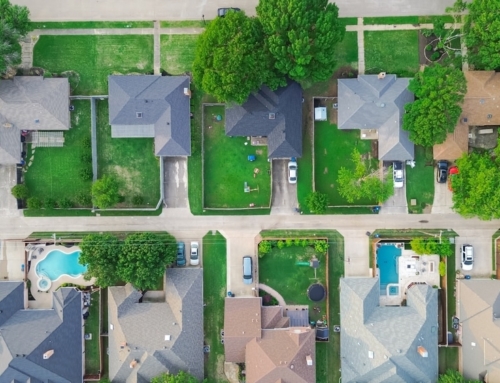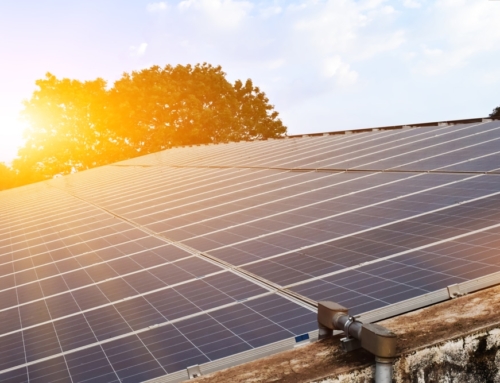Americans love to buy new things. New cars, with that indescribable new smell and clean upholstery are a draw despite price tags that start at $20,000 plus. On a small scale, we buy new clothes, new sheets, new towels and new socks. New feels good. On the sale rack is all the other stuff folks have pawed over.
On a large scale, a brand new house calls to us in the same way. The opportunity to build something tailored exactly the way we want it, to buy something no one has ever bought before, is extremely appealing. Indeed, that drive for newness is behind the staggering number (1.5 million) of new housing units sold last year.
If you’re going to successfully buy or build a brand new house, there are some issues you should consider before you put down your deposit:
- Location, location, location. Where you buy your new house should be one of your most important considerations. Ask yourself: How’;s the school district? Is it brand new and untested? What kind of transportation network is there? How far am I from work, school, family? What kind of shopping and services exist? In a brand new development, you may be surrounded by cornfields and have to drive 5 miles for a gallon of milk.
Check out the plans for future development of your new neighborhood before you buy. Make sure the area, when fully built out, contains the types of housing units and amenities that you’re looking for. Check with the local government’s planning department for information on zoning and future developments.
- Choosing the right developer. If you pick a lemon of a developer, not only are you likely to suffer during the building and closing of your new house, but you’re likely to have long-term problems after. You have several choices. You can go with a nationally-recognized brand-name developer, which are huge, well-funded companies with solid reputations and subsidiaries that provide services like financing for home buyers. You could choose a large local developer, with successful developments around the metro area. Or, you can find a small builder, who often has everything riding on a single development.
Which is best? That’s for you to find out. Each of these choices can work well, or be an unmitigated disaster. Check the local Better Business Bureau and your state Attorney General’s office for complaints filed. Skip the local home builder’s association; it’s usually just a public relations front for member builders. But be sure to ask about the builder’s reputation at the planning department of the local municipality.
Next, spend some time checking out past the builder’s past — past developments, that is. Go visit recently finished subdivisions, and those that are 2, 3 and 4 years old. Talk with the residents about what they liked and didn’t like, and if the developer actually lived up to his or her word. If the builder didn’t come back to fix their leaky roof, he probably wont come back to fix yours.
- Don’t forget to negotiate. Though developers often say the list price is non-negotiable, that generally isn’t true in the real world. What is true is that you’ll often get the best deal if you’re the first one in or last one in. Either way, the developer is eager to get in and get out. You’ll also do well in a slower market than one where everything is sold on grand opening day.
Builders tend to be more flexible when it comes to options and upgrades. Instead of lowering the price, they may upgrade appliances, tile, paint, and carpet. Or, you may be able to add a full basement for a fraction of the “option price.” Other builders give buyers a flat fee, say $10,000 to apply anywhere they’d like — toward the mortgage, upgrades and options, or lowering the sales price.
-
Make sure the contract says what you think it does. Too often, eager buyers naively agree to let the builder finish “as soon as possible,” or “sometime in October.” Large, professional builders can often tell you what week your house will be finished the day they break ground, and can tell you what day they’ll be ready to close on the day they start installing drywall. If you’re buying or building a new house, you’d be wise to have a real estate attorney look over the details of your purchase contract to make sure that you’re getting what you think you’re paying for. The builder’s obligations to you — such as when the house is to be delivered — should be spelled out clearly.
-
Stay involved. Too often, home buyers put down their deposit and then show up the day before closing to inspect their new home. Unfortunately, that’s too little, too late. You should stay in touch with the builder, and visit the home site frequently.
Many larger builders offer a buyer education program, that includes walking the home buyer through the construction at critical phases. Make sure the builder you choose welcomes your involvement and will take a reasonable amount of time to ensure you understand what’s happening. If you want to double check on your builder, consider hiring a reputable contractor or builder to tour the site with you and advise you on whether the builder is living up to the details of the contract.
- Punch lists and hold backs. Although you’d like your home to be perfect and trouble-free from the day you move it, you will likely have some problems. A punch list is a list of unfinished items (usually minor) that the buyer and builder agree need to be completed. Make sure that any remaining punch list items are negotiated before you close on the home. If there are large items to be finished, such as landscaping if you’re closing in winter, put money into escrow until the work is complete. Understand exactly what warranties the builder is offering and how long they last.
The key to successfully building or buying a new home is to take charge of the process. If you don’t, you could find your new home isn’t worth the foundation it stands on.






Leave A Comment